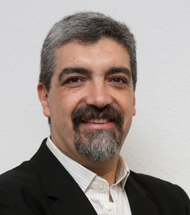Diego Maza Ozcoidi, Director of department of Physics and Applied Mathematics of the School of Sciences of the University of Navarra.
Not without some surprise
 As in other years at this time of year, the imminent advertisement of the Nobel Prizes arouses my curiosity a little more about the disruptive ideas they almost always entail as well as their consequences. I also find it fascinating, if not disturbing, how these prizes are received (perhaps I should say perceived) by society as a whole and consequently, all that will and can be said about them.
As in other years at this time of year, the imminent advertisement of the Nobel Prizes arouses my curiosity a little more about the disruptive ideas they almost always entail as well as their consequences. I also find it fascinating, if not disturbing, how these prizes are received (perhaps I should say perceived) by society as a whole and consequently, all that will and can be said about them.
However, this year I must confess that when I read the names of the winners in Physics I was overcome by a certain Degree sense of bewilderment. contact Partly because of the plurality of the award winners, i.e., three researchers who, although they share a common ground in the object of their research, have provided evidence that is very distant in time of phenomena that in a certain way can be considered disparate. James Peebles is one of the fathers of a theory that today we could call "popular", he established the instructions of an expanding universe where everything that exists is moving away from everything. This idea, conceived decades ago, won him the Nobel Prize in Physics for those who showed the existence of a form of radiation not identified until then, predicted in Peebles' theories, although he did not share the award with them in 1978.Along with Peebles, Michel Mayor and Didier Queloz, have received the award of this edition for providing precise measurements demonstrating the existence of exoplanets orbiting a star other than the sun. This observation is undoubtedly a remarkable scientific milestone and clearly deserves a prominent place among the achievements of modern astronomy.
Certainly both subjects are scientific achievements that cannot be ignored. However, past the advertisement my craving for novelty and the expected turning point that Nobel Prizes usually imply, it was not at all obvious to me. I believe in fact that this year's award , unlike some past editions, will not give as much play as others for colorful press articles full of exotic speculations. However, after listening to the arguments of the "chairman" of the Nobel Prize committee it is clear that this award consolidates a change of historical paradigm. This change stops considering cosmology as an (almost) speculative science, to take it to the field of experimental science, where theories can and must reach their metrological validation and from there generate new results.From my modest opinion this is undoubtedly the central aspect to highlight around this year's awardees; beyond the media immediacy that this subject of news usually implies, cosmic scale metrology is a reality that opens our knowledge to still unsuspected frontiers.
